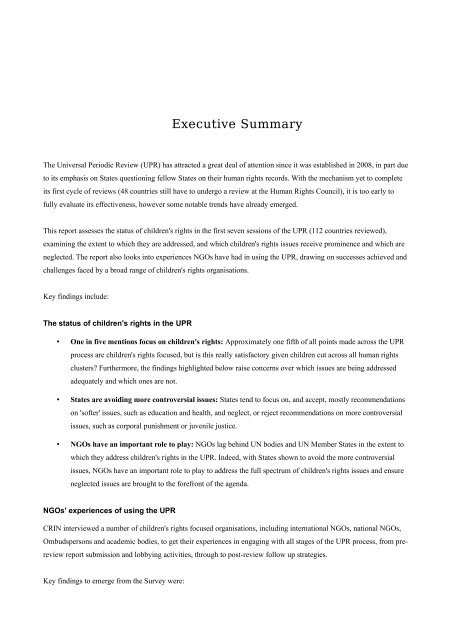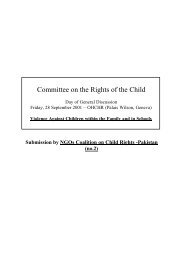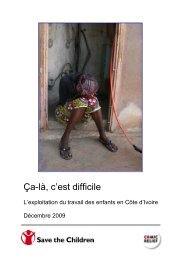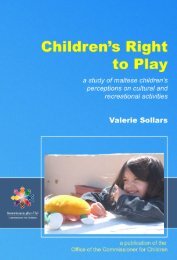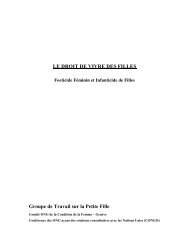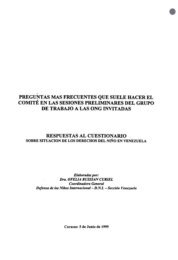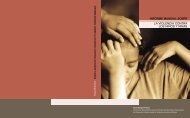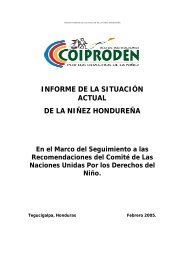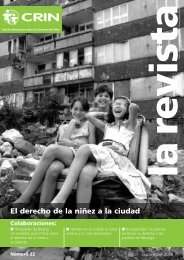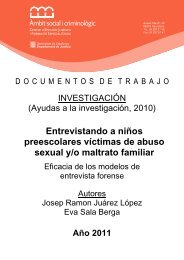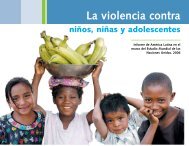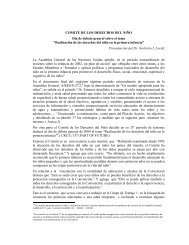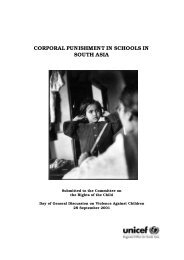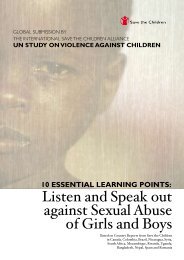Universal Periodic Review: The Status of Children's Rights - CRIN
Universal Periodic Review: The Status of Children's Rights - CRIN
Universal Periodic Review: The Status of Children's Rights - CRIN
Create successful ePaper yourself
Turn your PDF publications into a flip-book with our unique Google optimized e-Paper software.
Executive Summary<br />
<strong>The</strong> <strong>Universal</strong> <strong>Periodic</strong> <strong>Review</strong> (UPR) has attracted a great deal <strong>of</strong> attention since it was established in 2008, in part due<br />
to its emphasis on States questioning fellow States on their human rights records. With the mechanism yet to complete<br />
its first cycle <strong>of</strong> reviews (48 countries still have to undergo a review at the Human <strong>Rights</strong> Council), it is too early to<br />
fully evaluate its effectiveness, however some notable trends have already emerged.<br />
This report assesses the status <strong>of</strong> children's rights in the first seven sessions <strong>of</strong> the UPR (112 countries reviewed),<br />
examining the extent to which they are addressed, and which children's rights issues receive prominence and which are<br />
neglected. <strong>The</strong> report also looks into experiences NGOs have had in using the UPR, drawing on successes achieved and<br />
challenges faced by a broad range <strong>of</strong> children's rights organisations.<br />
Key findings include:<br />
<strong>The</strong> status <strong>of</strong> children's rights in the UPR<br />
• One in five mentions focus on children's rights: Approximately one fifth <strong>of</strong> all points made across the UPR<br />
process are children's rights focused, but is this really satisfactory given children cut across all human rights<br />
clusters? Furthermore, the findings highlighted below raise concerns over which issues are being addressed<br />
adequately and which ones are not.<br />
• States are avoiding more controversial issues: States tend to focus on, and accept, mostly recommendations<br />
on 's<strong>of</strong>ter' issues, such as education and health, and neglect, or reject recommendations on more controversial<br />
issues, such as corporal punishment or juvenile justice.<br />
• NGOs have an important role to play: NGOs lag behind UN bodies and UN Member States in the extent to<br />
which they address children's rights in the UPR. Indeed, with States shown to avoid the more controversial<br />
issues, NGOs have an important role to play to address the full spectrum <strong>of</strong> children's rights issues and ensure<br />
neglected issues are brought to the forefront <strong>of</strong> the agenda.<br />
NGOs' experiences <strong>of</strong> using the UPR<br />
<strong>CRIN</strong> interviewed a number <strong>of</strong> children's rights focused organisations, including international NGOs, national NGOs,<br />
Ombudspersons and academic bodies, to get their experiences in engaging with all stages <strong>of</strong> the UPR process, from pre-<br />
review report submission and lobbying activities, through to post-review follow up strategies.<br />
Key findings to emerge from the Survey were:


